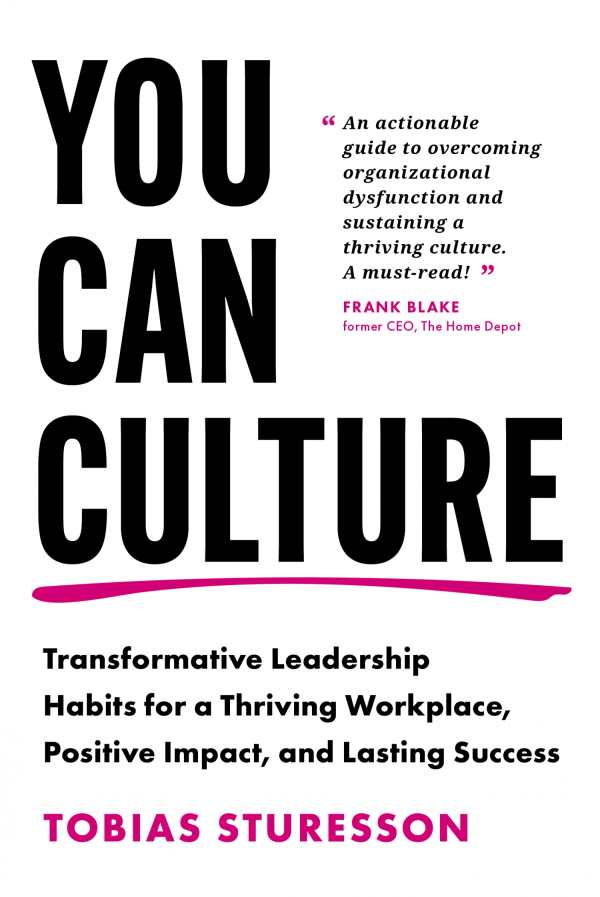You Can Culture
Transformative Leadership Habits for a Thriving Workplace, Positive Impact, and Lasting Success
An organized handbook to achieving organizational health, You Can Culture encourages reconsidering a company’s values and ingrained behaviors.
Tobias Sturesson’s comprehensive guide to the impact of workplace culture on productivity and success, You Can Culture, synthesizes firsthand experiences, scientific research, and practical knowledge into a plan for evaluating leadership skills and improving a business’s performance.
Diagnosing an epidemic of unhealthy workplaces, You Can Culture rebukes the efficacy of splashy, short-term projects to amplify a company’s environment, arguing that meaningful change is achieved through long-term commitment and generalized reconsiderations of values and ingrained behaviors. Dovetailing with this argument, the nebulous concept of good work culture is defined as a practice, a pursuit of improvement that doesn’t end at any single goalpost. Marshaling Sturesson’s personal experiences to bear on its arguments, the book highlights the first challenge to improving a company’s culture: acknowledging the wishful thinking and subtle, self-serving dishonesties that undermine it. To illustrate this, it uses the extreme example of how Sturesson was drawn into a toxic religious cult and remained in denial about its activities for years before abandoning it. This sets up the first step or habit, “Get Humble,” in the book’s four-step program.
The book introduces twelve practices in total whose implementation is designed to span an entire year. The named habits include getting clarity, listening, and practicing integrity, and all are complemented by anecdotes about business leaders, surveys, and research quantifying employee appreciation and the downstream effects of communal activity. Reflection questions are a source of further support.
The book’s major project of creating a space where new habits can form is also facilitated by a proposed timeline that requires that one or two goals be performed each month, similar to school homework. This personal accountability framework leans into the educational effects of consistent, self-directed action. For example, one of the “Get Listening” practices is to outline and commit to one new way of helping team members speak up and exercise their voices.
Though demanding, each required action is the culmination of the month’s reading, providing a direct outlet for experimenting with the named techniques and theoretical ideas. And the book also includes tips and useful language for identifying, if not resolving, root causes behind cultural shortcomings that can be dipped into outside of its formal structure. A list of three common mistakes that lead value-driven leaders to undermine the beliefs they espouse reveals the psychology behind “ethical fading,” for example. Further, the book’s frequent use of subject-specific phrases like “culture is cocreated” and “we get what we celebrate” helps to pinpoint and respond to specific cultural issues within a company that may otherwise be difficult to name.
You Can Culture is an organized guide to transforming unhealthy workplace cultures and promoting organizational well-being.
Reviewed by
Willem Marx
Disclosure: This article is not an endorsement, but a review. The publisher of this book provided free copies of the book and paid a small fee to have their book reviewed by a professional reviewer. Foreword Reviews and Clarion Reviews make no guarantee that the publisher will receive a positive review. Foreword Magazine, Inc. is disclosing this in accordance with the Federal Trade Commission’s 16 CFR, Part 255.

